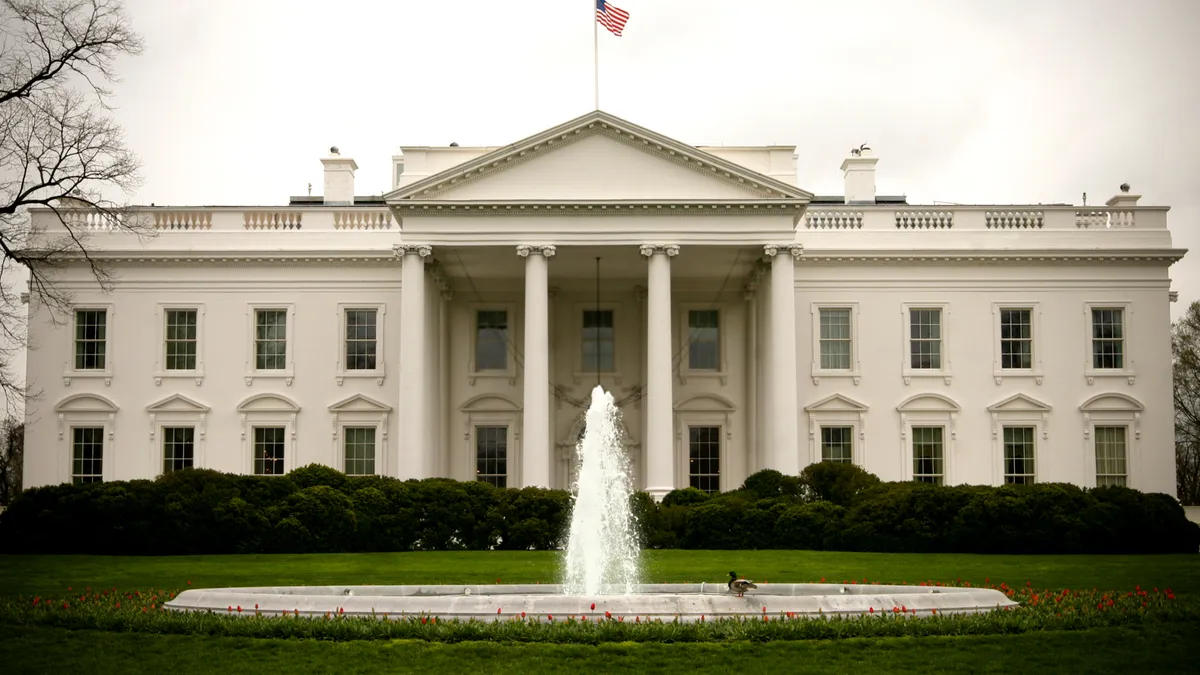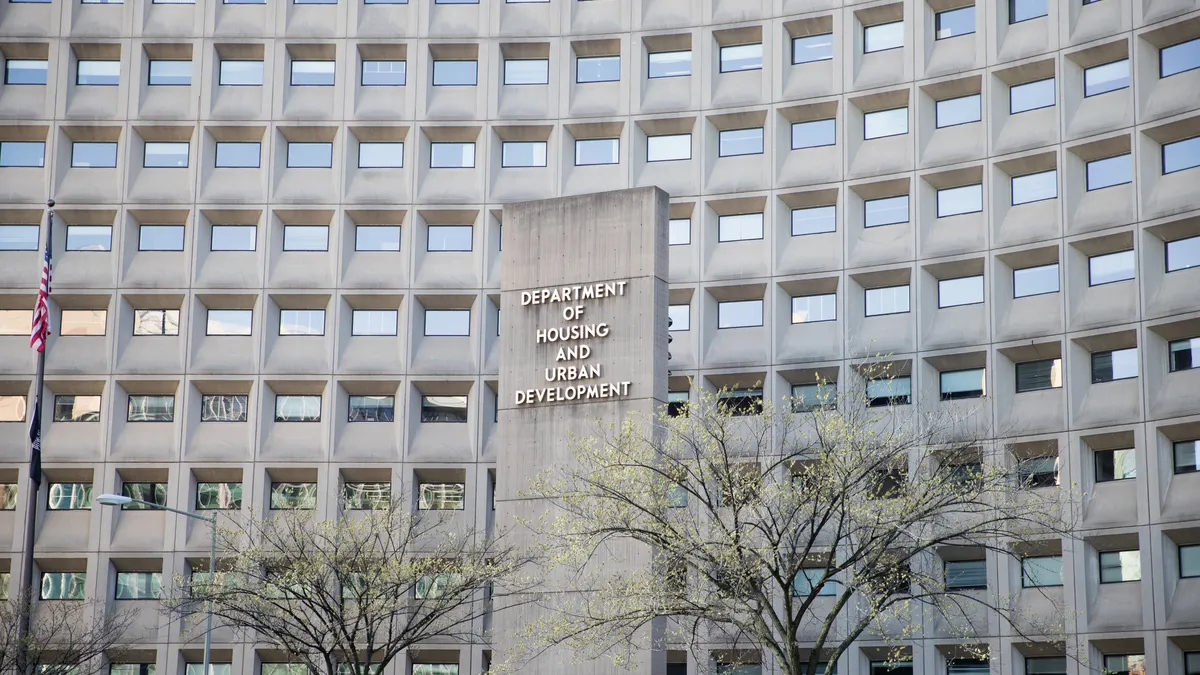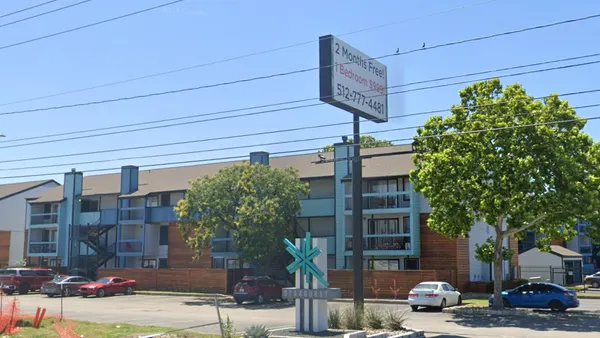Dive Brief:
- The Biden administration unveiled a series of actions Wednesday aimed at increasing renter protections, improving housing affordability and furthering fair housing principles.
- Multiple federal agencies will gather information about housing issues such as tenant screening practices and rent increases. A Department of Justice workshop will inform potential guidance updates around anti-competitive information sharing, including in rental markets.
- The Federal Trade Commission and the Consumer Financial Protection Bureau will collect information on topics such as tenant background checks, the use of algorithms in tenant screening, the provision of adverse action notices by landlords and property management companies and how an applicant’s source of income factors into housing decisions.
Dive Insight:
“Today’s announcements recognize there are responsible housing providers – large and small, national and local – willing to treat renters fairly, but it also holds accountable those who exploit market realities at the cost of renters’ housing access and stability,” the White House release said. Other key actions in the plan include:
- The CFPB will issue guidance and coordinate enforcement efforts with the FTC to ensure accurate information in the credit reporting system and to hold background check companies accountable for having unreasonable procedures.
- The Federal Housing Finance Agency will launch a new public process to examine proposed actions promoting renter protections and limits on egregious rent increases for future investments. As announced in November, the FHFA will also increase affordability in the multifamily rental market by establishing requirements that encourage the financing of multifamily loans that guarantee affordable housing.
- The Department of Housing and Urban Development will publish a notice of proposed rulemaking that would require public housing authorities and owners of project-based rental assistance properties to provide at least 30 days’ advanced notice before terminating a lease due to nonpayment of rent.
- The administration will hold quarterly meetings with a broad, diverse and varying group of tenants and tenant advocates to ensure they continue to have a seat at the table and can share ambitious ideas to strengthen tenant protections.
- The White House also launched a challenge to public and private organizations to strengthen or develop new practices around resident protections and services. Participants in this initiative, called the Resident-Centered Housing Challenge, include the National Apartment Association and the National Multifamily Housing Council.
While none of these principles have the force of law, Minneapolis-based investment banking firm Piper Sandler anticipates that potential legislation based on these ideas could have negative consequences for subsidized housing in major cities.
“This proposal will likely discourage more housing investment where it is most needed,” the firm said in a statement.
The firm noted that rental housing is already heavily regulated and that local laws effectively provide rent control — whether outright or through caps on increases — in large markets such as New York and California.
“On the heels of the pandemic rent moratoriums, which L.A. is effectively building on with its recent Good Cause eviction passage, and increased rent control of the past several years, landlords in [many coastal] markets now face the potential for future rent moratoriums next time politicians feel the urge to declare an emergency,” the firm wrote. “By contrast, the Sun Belt [states] remains largely free of these sorts of regulations, plus are supportive of landlord rights.”
Other takeaways
Industry reaction to the plan was mixed. The NMHC released a statement expressing relief that the new plan did not include mandates such as a national rent control ruling, but said that it duplicates state and local laws.
“We are disappointed they are pursuing potentially duplicative and onerous regulations that are already appropriately addressed under state and local law,” the NMHC said in its statement. “These efforts will do nothing to address the nation’s housing shortage and could discourage much-needed investments in housing.”
The NMHC urged the administration to enact President Joe Biden’s Housing Supply Action Plan issued in May, which outlines strategies to close the housing supply deficit within five years.
Diane Yentel, president and CEO of the National Low Income Housing Coalition, said in a statement on Twitter that the administration’s actions “are an important step towards achieving President Biden’s commitment to establishing a Renters Bill of Rights.” She said it goes “much further” than she’s ever seen “in amplifying and promoting the importance of renter rights and protections.”
Bob Pinnegar, president and CEO of the NAA, noted that his group has worked closely with the White House on housing policy, and in doing so had communicated its opposition to federal involvement in landlord and tenant relationships.
“Complex housing policy is a state and local issue,” Pinnegar said in a statement, “and the best solutions utilize carrots over sticks.”











